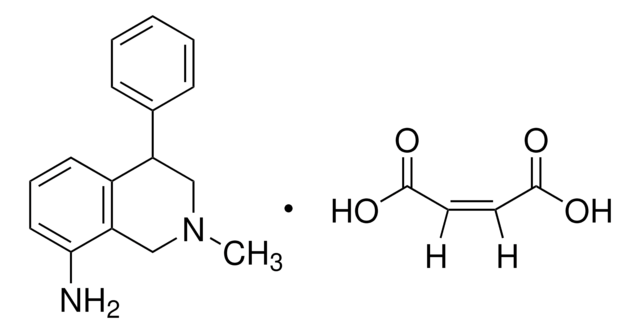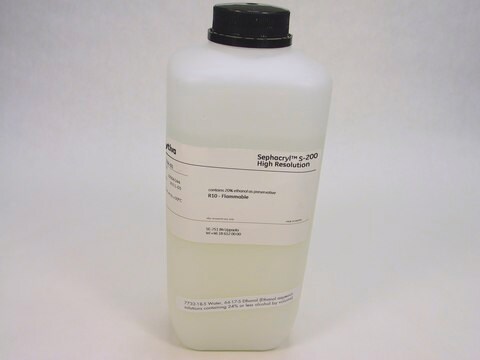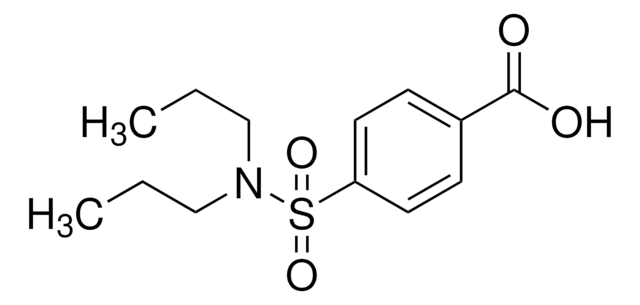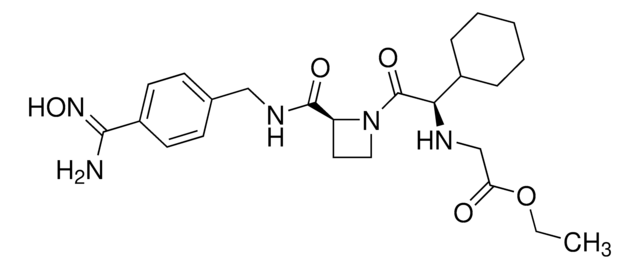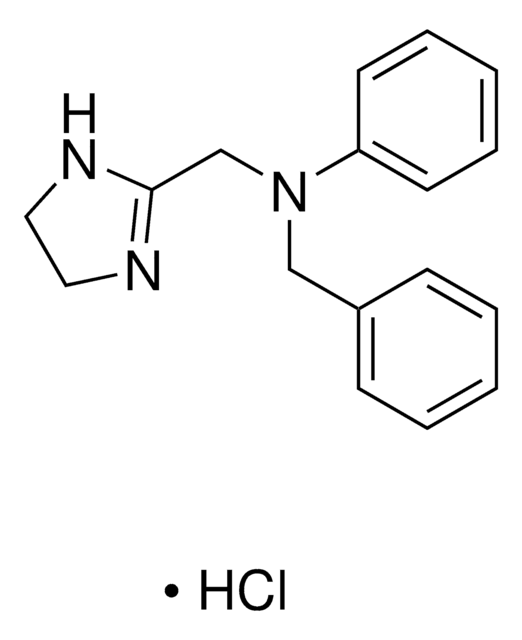SML0846
Anagrelide hydrochloride
≥98% (HPLC)
Sinónimos:
6,7-Dichloro-1,5-dihydro-imidazo[2,1-b]quinazolin-2(3H)-one hydrochloride
About This Item
Productos recomendados
Quality Level
assay
≥98% (HPLC)
form
powder
storage condition
desiccated
color
white to beige
solubility
DMSO: 1 mg/mL, clear (warmed)
storage temp.
2-8°C
InChI
1S/C10H7Cl2N3O.ClH/c11-6-1-2-7-5(9(6)12)3-15-4-8(16)14-10(15)13-7;/h1-2H,3-4H2,(H,13,14,16);1H
InChI key
TVWRQCIPWUCNMI-UHFFFAOYSA-N
General description
Fab fragments from polyclonal anti-fluorescein antibodies, conjugated to alkaline phosphatase.
After immunization with fluorescein, the sheep IgG was purified by ion exchange chromatography and the specific IgG was isolated by immunosorption. The Fab fragments obtained by papain digestion were purified by gel filtration, conjugated with alkaline phosphatase, and stabilized in 50 mM triethanolamine buffer, 3 M NaCl, 1 mM MgCl2, 0.1 mM ZnCl2, 1% bovine serum albumin (w/v), pH 7.6.
Clone: polyclonal
Ig class: sheep IgG, Fab fragments
Biochem/physiol Actions
Features and Benefits
signalword
Warning
hcodes
Hazard Classifications
Aquatic Chronic 4 - Carc. 2 - Repr. 2
Storage Class
11 - Combustible Solids
wgk_germany
WGK 3
flash_point_f
Not applicable
flash_point_c
Not applicable
Elija entre una de las versiones más recientes:
Certificados de análisis (COA)
¿No ve la versión correcta?
Si necesita una versión concreta, puede buscar un certificado específico por el número de lote.
¿Ya tiene este producto?
Encuentre la documentación para los productos que ha comprado recientemente en la Biblioteca de documentos.
Artículos
Cyclic nucleotide phosphodiesterases (PDEs) catalyze the hydrolysis of cAMP and/or cGMP. There are 11 different mammalian PDE families.
Contenido relacionado
Cyclic nucleotides, including cyclic AMP (cAMP), cyclic GMP (cGMP) and cyclic ADP-ribose, have been extensively studied as second messengers of intracellular events initiated by activation of GPCRs. cAMP modifies cell function in all eukaryotic cells, principally through the activation of cAMP-dependent protein kinase (PKA), but also through cAMP-gated ion channels and guanine nucleotide exchange factors directly activated by cAMP.
Nuestro equipo de científicos tiene experiencia en todas las áreas de investigación: Ciencias de la vida, Ciencia de los materiales, Síntesis química, Cromatografía, Analítica y muchas otras.
Póngase en contacto con el Servicio técnico



